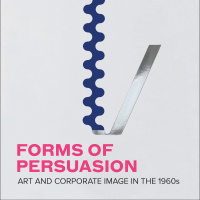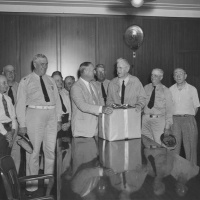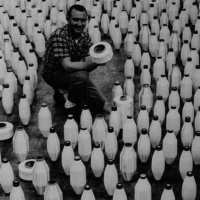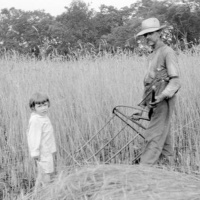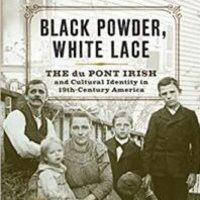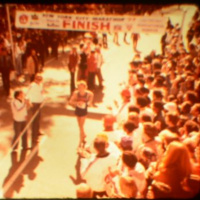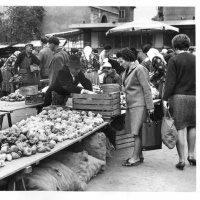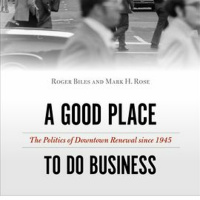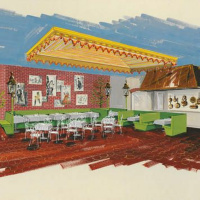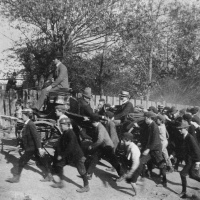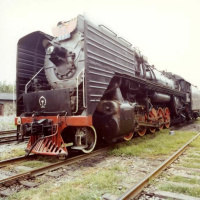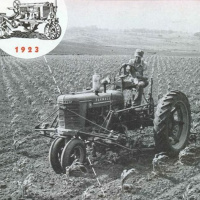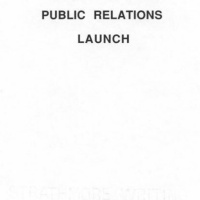Stories From The Stacks
- Author: Vários
- Narrator: Vários
- Publisher: Podcast
- Duration: 78:24:57
- More information
Informações:
Synopsis
Podcast by Hagley Museum and Library
Episodes
-
Smoke ‘Em If You Got ‘Em: American Tobacco & Broadcast Media with Peter Kovacs
07/08/2023 Duration: 26minThe American tobacco oligopoly of five firms loomed large in the mid-twentieth century thanks to the addictive qualities of their products and the massive investment they made in broadcast marketing communications, influencing the media experience of millions of Americans and the wider landscape of American media for generations. Media historian Peter Kovacs is conducting research on the influence of American tobacco firms on broadcast media, and argues that the tobacco company sponsorship of broadcast programs on radio and television profoundly shaped the form and content of both individual programs and the broadcast media industry at large. Using Hagley’s unrivalled collection of marketing and advertising archives, including the papers of ad agency giant BBD&O, Kovacs assembles a story of corporate competition over the airwaves from the first tobacco -sponsored radio program in 1924 to the banning of broadcast tobacco advertising in 1971. Dr. Kovacs received support for his research from the Center for t
-
Forms of Persuasion: Art & Corporate Image in the 1960s with Alex Taylor
24/07/2023 Duration: 42minIn this episode of Hagley History Hangout Roger Horowitz sits down with Alex Taylor to discuss his new book, Forms of Persuasion: Art and Corporate Image in the 1960s, the first dedicated history of corporate patronage in post-war art. Taylor’s book considers how a wide range of artists were deeply immersed in the marketing strategies of big business during the 1960s and explored with multinational corporations new ways to use art for commercial gain. From Andy Warhol’s work for packaged goods manufacturers to Richard Serra’s involvement with the steel industry, Taylor demonstrates how major artists of the period provided brands with “forms of persuasion” that bolstered corporate power, prestige, and profit. Drawing on extensive original research conducted in artist, gallery, and corporate archives, Taylor recovers a flourishing field of promotional initiatives that saw artists, advertising creatives, and executives working around the same tables. Alex J. Taylor is associate professor of art and visual cul
-
American Advertising: Researching Capitalism from the Inside Out with Cynthia Meyers
10/07/2023 Duration: 38minWhat archive could possibly give you a total view of American business practice in the twentieth century? What industry touched and participated in nearly every other industry? What firm yields insight into a cavalcade of firms in one fell swoop? The answer to all of these questions is the BBD&O advertising agency archive held in the Hagley Museum & Library. Cynthia Meyers, professor emerita of Communication, Art, & Media at College of Mount Saint Vincent, has dedicated her career to uncovering the incredible stories of American advertising on twentieth-century airwaves. Her work highlights the significance of the BBD&O advertising firm and its archive to our understanding of business, culture, and technology as they evolved over the twentieth century. Whether your research interest lies in firms such as GM, GE, DuPont, Lever Bros, Proctor & Gamble; or in the details of radio and television production; or in the social dynamics of race and gender; or in a multitude of other directions, the advertising agenc
-
Old Brains: How Corporate America Measured Aging with James Leach
26/06/2023 Duration: 17minCognitive changes occur across the human lifespan, with consequences for economic conditions. How people have understood these changes, and managed their interaction with life and work has changed over time. As industrialization sped up work, and enhanced the wealth of society, social scientists and business leaders struggled to better understand the aging process, and to address its implications in the workplace. In his dissertation project, James Leach, PhD candidate at Carnegie Mellon University, uncovers the status of old age and retirement in the American corporate workplace between 1945 and 1986. During these decades, as more Americans considered pensions, social security, and freedom from poverty in old age to be theirs by right of membership in a rich, industrial, modern nation, corporations found ways to turn retirement to their own pecuniary advantage. In support of his work, Leach received an exploratory grant from the Center for the History of Business, Technology, & Society at the Hagley Museum
-
Kerosene Antimonopoly: Standard Oil & the People Who Hated It with Minseok Jang
12/06/2023 Duration: 29minHow does a movement unite the disparate interests of producer and consumers? By directing their shared ire against a powerful middleman. That is how opponents of the Standard Oil monopoly on kerosene refining and distribution joined forces to take on the corporate giant. In his dissertation project, Minseok Jang, PhD candidate at the University of Albany, explores the materiality of kerosene and its impacts on people at every link in the commodity chain; from oil fields through refineries and pipelines to the homes and businesses of end-users. Jang argues that the unique qualities contemporaries perceived in kerosene created both opportunities and risks. When Standard Oil attempted to monopolize the opportunities while externalizing the risks, the firm goaded an array of people into united anti-monopolist action. In support of his work, Jang received an exploratory grant from the Center for the History of Business, Technology, & Society at the Hagley Museum & Library. For more information on our funding opp
-
Building an Oral History of DuPont’s Textile Fibers Department with Joe Plasky
29/05/2023 Duration: 45minJoe Plasky talks about his efforts interviewing as many people as he can who worked for DuPont’s Textile Fibers Department between 1950 and 2000. Joe Plasky is a retired engineer from DuPont’s Textile Fibers Department and he has been collecting oral histories from former DuPont Textile Fibers employees for well over a decade. Every year, sometimes multiple times per year, Mr. Plasky deposits a batch of these oral histories with Hagley. Currently, the collection has approximately 260 interviews and counting. In this interview, Plasky talks about what inspired him to undertake a project of this size and how he feels the development of different kinds of polyesters, including Dacron and other fibers used for their elasticity in shapewear is an under-researched topic. He also shares some of the most interesting stories he’s heard while working on this project and shares what he hopes future researchers will be able to learn by utilizing these interviews. The entirety of the Oral Hstory Interviews with Former
-
Survival is Improvisational: Casual Labor in Postwar America with Maia Silber
15/05/2023 Duration: 28minEven the most favored workers of the New Deal order, white male heads of households with unionized industrial jobs, faced economic uncertainty in the form of irregularity of work and earnings. These workers and their families made ends meet with a variety of “casual” work arrangements; seasonal labor, barter, family interdependence, etc. Much of the rest of the American labor force in the post-World War Two period was entirely dependent upon the casual labor sector for their livelihoods. In her dissertation project, Maia Silber, PhD candidate in history at Princeton University, uncovers the experience of causal workers and their families in the 1940s and ‘50s United States. Drawing upon the varied archives of social workers, industrial firms, business organizations, and the labor-related institutions that emerged from the New Deal, Silber uncovers a social history of causal labor during the height of postwar American prosperity, when even relatively privileged workers had to improvise in order to survive.
-
Underwriters of the United States: How Insurance Shaped the American Founding with Hannah Farber
01/05/2023 Duration: 55minIn this edition of Hagley History Hangout, Hannah Farber discusses her new prize-winning book, Underwriters of the United States, with Roger Horowitz. Her book traces how American maritime insurers used their position at the pinnacle of global trade to shape the formation of the United States. During American Revolution, they helped the U.S. negotiate foreign loans, sell state debts, and establish a single national bank. Afterward, they increased their influence by lending money to the federal government and to its citizens. Even as federal and state governments began to encroach on their domain, maritime insurers adapted, preserving their autonomy and authority through extensive involvement in the formation of commercial law. Leveraging their claims to unmatched expertise, they operated free from government interference while simultaneously embedding themselves into the nation’s institutional fabric. Farber’s book received the Hagley Prize for the best book in business history in 2023. Hannah Farber is as
-
How Florida Happened with Anna Andrzejewski
17/04/2023 Duration: 33minThe distinctive landscape of south Florida has its roots in the attempt by mid-twentieth century developers to transform the “last frontier” in American into piles of cash. Where they succeeded there now reigns an over-developed suburban landscape of leisure dominated by residential spaces and amenities like golf courses and parks. The decades-long process has had profound consequences for the environment of Florida as well as the culture and politics of the United States at-large. Revealing this story through her research is Anna Andrzejewski, professor of art history at the University of Wisconsin – Madison, whose latest book project steps from the typical Florida style suburban home, through the planned development, regional complexes, and national impacts to show how the south Florida landscape developed and why it has had such an outsized role in contemporary American history. In support of her work, Dr. Andrzejewski received the NEH-Hagley Fellowship. For more information on funding opportunities from
-
Black Powder, White Lace: The DuPont Irish & Cultural Identity in 19thC USA with Margaret Mulrooney
03/04/2023 Duration: 01h17minThis special edition of the Hagley History Hangout features Dr. Margaret Mulrooney presenting her work on the DuPont Irish and celebrating the 20th Anniversary re-release of her book at an Author Talk event hosted by the Center for the History of Business, Technology, & Society at the Hagley Museum & Library. Twenty years ago, Margaret Mulrooney’s history of the community of Irish immigrant workers at the du Pont powder yards, Black Powder, White Lace, was published to wide acclaim. Now, as much of the materials Mulrooney used in her research are now electronically available to the public, and as debates about immigration continue to rage, a new edition of the book is being published to remind readers of the rich materials available on the du Pont workers, and of Mulrooney’s powerful conclusions about immigrant communities in America. Explosives work was dangerous, but the du Ponts provided a host of benefits to their workers. As a result, the Irish remained loyal to their employers, convinced by their ever
-
Yuppies: Wall Street & the Remaking of New York with Dylan Gottlieb
20/03/2023 Duration: 20minYoung urban professional (yuppies for short) emerged as an archetype close to the heart of transformations taking place in American society during the 1970s and 1980s. These highly-educated individuals were products and architects of a new American economy geared toward financial services and willing cannibalize much of the rest of the economy for short-term profit. While elite universities had once turned out managers for manufacturing firms in midsize cities, by the 1980s their graduates were flocking into banking in major urban centers such as Chicago where the term yuppy originated, but most markedly New York. In his book project, Dr. Dylan Gottlieb, assistant professor at Bentley University and former NEH-Hagley postdoctoral fellow, uncovers a social history of financialization through the lens of yuppies, their economic position, and their cultural proclivities. Among the markers of yuppiedom were an obsession with fitness, an interest in fine dining, and a drive to command cultural symbols as means o
-
Links in the Chain: Department Stores in Socialist Yugoslavia, 1950s-1980s with Ivana Zimbrek
06/03/2023 Duration: 34minYugoslavian planners considered themselves to be architects of a third way “between the blocs,” aligned neither with the capitalist West nor the Communist East, but rather masters of their own socio-economic destiny. This ramified in the economy and on the streets of Yugoslav cities in the form of supermarkets and their larger kin department stores. Ivana Zimbrek, PhD candidate in history at Central European University, investigates the history of Yugoslav department stores as the product of professional imagination in a markedly international context. While the department store as a retail technology had its origins in the explicitly capitalist United States, Yugoislav planners admired its efficiency and “cultural level,” and believed that they could turn it toward state-socialist purposes. As a result, indigenized department stores populated the new neighborhoods of growing capital cities, and later gained a place in the historic centers of smaller towns throughout Yugoslavia. Zimbrek studied a diverse arc
-
A Good Place to Do Business: The Politics of Downtown Renewal since 1945 with Mark Rose
20/02/2023 Duration: 46minSince World War II the old industrial cities of the northeast and Midwest USA have repeatedly sought to end periods of decline by seeking to renew their downtowns. Convention centers, sports stadiums, hospitals, and tourist-oriented investment have all been deployed in an effort to restore a tax base and reinvigorate urban areas. Just as repeatedly the efforts have failed to bring benefits to the residents of these cities, especially African Americans. Mark Rose, Professor of History at Florida Atlantic University, talks with Roger Horowitz about these dynamics, drawing on his recent book A Good Place to Do Business: The Politics of Downtown Renewal Since 1945 co-authored Roger Biles. Their book chronicles efforts to reinvigorate the downtowns of major American cities in order to reverse the process of urban decline focusing on St. Louis, Philadelphia, Detroit, Chicago and Cleveland. As city officials and business elites determined to reorganize their downtowns, deeply racialized politics sacrificed neighbor
-
Be His Guest: How Conrad Hilton Made Hotels Better than Homes with Megan Elias
06/02/2023 Duration: 30minHilton Hotels started in Texas and swelled into a globe-straddling hospitality behemoth. Along the way company founder Conrad Hilton kept ideas about affordable luxury at the center of his business model. Among the affordable luxuries on offer in Hilton Hotels was an “eclectic modernist” design sensibility that placed the American consumer at the apex of a global cultural hierarchy. In her book project, Megan Elias, associate professor and director of the Gastronomy program at Boston University, traces a design history of Hilton Hotels. To uncover this story, Elias conducted research in multiple Hagley Library collections, such as the William Pahlmann Associates papers, and the Ernst Dichter papers. Among her key findings are how design decisions bore upon the business of hospitality at every turn. From architecture to furniture, food, and art, every aspect of the experience of a Hilton Hotel was crafted to appeal to consumer desires. Whereas hospitality had traditionally been an ersatz affair with uncomfor
-
Set the Earth on Fire: The 1902 Anthracite Coal Strike with David Correia
23/01/2023 Duration: 42minAmerica at the dawn of the twentieth century ran on anthracite coal. Burning the hard, lustrous fossil fuel heated millions of homes and powered locomotives, steamships, foundries, and factories. Nearly all of this coal came out of the hills of eastern Pennsylvania, mined by an army of workers who labored in the most dangerous industry in American for the lowest wages in the country. At about $1/day, anthracite coal miners in 1900 earned the same wage as ad their forebears eighty years previously. Hardship led some miners to organize for the United Mine Workers of America (UMWA) union, but divisions along ethnic and class lines among miners limited their effectiveness. That is, until 1902. As shown in the research of Daniel Correia, professor of American Studies at the University of New Mexico, the alignment of the interests of the Eastern European immigrant mine “laborers” with those of the native and systemically favored mine “contractors” under the umbrella of the UMWA in 1902 created a uniquely advantage
-
China's Dream of a Red Railway: Technicians & Industrial Power, 1945-1976 with Benjamin Kletzer
09/01/2023 Duration: 45minRailroads unite. Across time and space the railroad has tied together diverse peoples and places with literal and figurative bonds. An outstanding example of this historical process is the transfer and elaboration of a railroad technocracy from origins in the United States to efflorescence in the People’s Republic of China. In his dissertation project, Benjamin Kletzer, PhD candidate in modern Chinese history at the University of California at San Diego, explores the post-WWII history of the China national railway, its embrace of technocratic management, it relationship to the Chinese Communist Party, and its technical and organizational roots in the Pennsylvania Railroad. Using Hagley Library collections, Kletzer traces the story of a cohort of Chinese engineers who studied in the United States, funded in part by the U.S. military, and transferred their newly acquired expertise to the developing railway system in China. This cohort had a unique historical opportunity to shape Chinese railways due to the de
-
Oral History & Video Games: Preserving the Digital Past with Kevin Bunch
12/12/2022 Duration: 43minSometimes, oral history makes up for a shortfall in the archival record, or adds depth and greater context to existing archival records. RCA had many short-lived projects in the 1960s and 1970s which aren’t as well documented as some of their other developments. Kevin Bunch is a writer and communications specialist for the International Joint Commission and an independent researcher of video game history, centered his research at Hagley on RCA in the 1970s. In 1977 RCA released their own home video game console, the RCA Studio II. The device, which played games in black and white, had five built-in games and 11 cartridges released over the course of its short life- it was discontinued in 1978. Bunch interviewed several members of the Studio II development team, as well as developers who worked on RCAs other endeavors including some 1960s arcade machines, and a short-lived virtual reality project in the 1990s. Bunch’s interviews included one with Joyce Weisbecker, an independent game developer and the daught
-
Agroecological Farming: Prehistories of Agriculture’s Digital Turn with Alexander Liebman
28/11/2022 Duration: 29minHistorians of technology once famously asked, “does technology drive history?” Their answer was, “it depends.” The phenomena of history do not float atop of the changes within material practices and technology, but neither do they stand apart from them; the two are intimately entwined in the contingent, intermittent unfolding of history. The challenge for the historian is to open the black box of technology, and to make its social setting and connection explicit to allow for a better understanding of its role in continuity and change over time. Alexander Liebman, geographer and PhD candidate at Rutgers University, asks how this complicated set of interrelated factors have ramified upon the ground in agricultural spaces as twentieth-century engineers, planners, and others applied the technologies of computation and automation to farming. Among the major figures in this story was Arthur Hall, an engineer at Bell Laboratories and innovator in computerized agriculture. His patented 1970s-era “autofarm” aimed to
-
Detroit Muscle: Automobile Manufacturing and the Middle West with Kevin Moskowitz
14/11/2022 Duration: 31minLong before automobiles roll off the assembly line, their many components are manufactured by a sprawling constellation of smaller businesses that supply the makers of finished automobiles. This automobile supply chain began in the 1920s within the Detroit metropolitan area, and by the 1960s had swollen to embrace an area roughly 600 miles in radius with its core remaining in southeast Michigan. The story of how the automobile supply chain developed during the first half of the twentieth century, and why it took the specific spatial and economic form that it did, are the subjects of a dissertation project by Kevin Moskowitz, PhD candidate at the University of Texas at Arlington. To uncover his story, Moskowitz dug into the archives of the American Iron & Steel Institute and the National Bronze & Aluminum Company at the Hagley Library. The latter firm supplied cast cylinder heads and other engine components to Detroit automakers from its location in Cleveland. The company boomed when orders were large, but st
-
Working Relationships: A Labor-Centric History of U.S. Public Relations with Patricia Curtin
28/10/2022 Duration: 27minScholars have written histories of public relations. Scholars have written histories of labor. Scholars had yet to bring the two histories into conversation with one another, that is until Patricia Curtin, professor at the University of Oregon, started her latest book project. Dr. Curtin’s research illustrates the many connections between public relations and American labor in the early twentieth century. Whereas capital had its public relations gurus, such as Ivy Lee, so too did the labor movement, with Mother Jones and the IWW leading the way. The struggle for control over firms, economic resources, and business management pivoted, at least in part, on public opinion. Neither capital nor labor could afford to lose the opportunity to cultivate public support, and both sides went at it with gusto. Over the long term, capital had the upper hand. But successful and popular unionization efforts in the twenty-first century, such as that organized by Starbucks workers, may indicate a turning tide in the story. I


